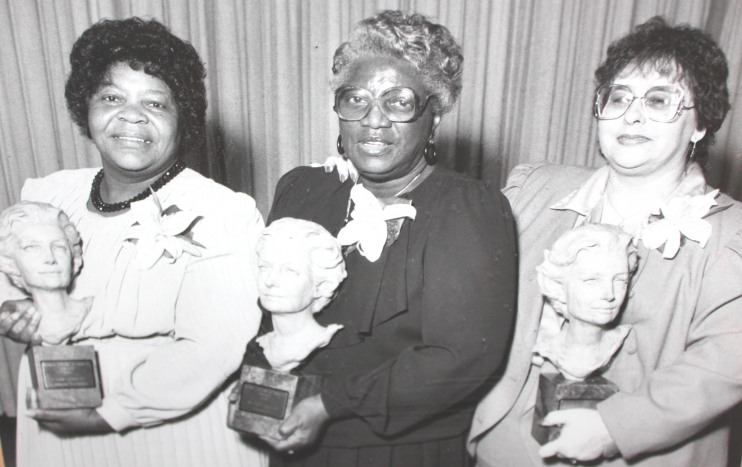
Fannie Corbett knows what it’s like to be poor, and long ago she vowed she would help other people become self-supporting like herself. As director of the Wilson Community Improvement Association, Ms.Corbett has helped the elderly and poor people of Wilson find affordable housing, food, worthwhile pastimes and a means to get from their homes to the supermarket or doctor.
She took the Association's reins when its assets were nothing more than an ideal and, through perseverance and tremendous patience, turned it into a catalyst for helping
the poor.
With housing for the elderly poor and a day care center for low-income families already a reality she is turning her efforts toward housing for migrant farm workers.
Patricia Kepler Youngblood has dedicated the last six years of her life to healing broken hearts and opening the hearts and minds of others. Through the Albemarle Hopeline in Elizabeth City, women and children victims of abuse who once suffered silently have discovered hope. Now director of Hopeline, she was once a volunteer.Under her leadership, Hopeline provides counseling, shelter and a 24-hour crisis line for six counties.
Mrs. Youngblood reaches out through church and civic groups to bring the needs and problems of abuse victims to everyone's attention, and she is working to establish a satellite office to serve residents of outlying counties. She has begun research on the problems of teen-dating violence, in hopes of incorporating the issue into health curricula of local high schools.
Mildred Taylor saw the hopes and aspirations of one Charlotte black neighborhood dashed twenty years ago, and when history looked like it was about to repeat itself, she vowed to fight. Upon learning that the city planned to widen a two-lane expressway, Ms. Taylor organized a task force to find a workable alternative.
Not content to stop there, she turned the task force into a permanent neighborhood organization and set out to ensure that what was saved also might prosper. Working side-by-side with soon-to-be new homeowners, Habitat for Humanity volunteers have built more than 40 new houses in her neighborhood. Ms. Taylor is applying the lessons learned in her neighborhood to other low-income neighborhoods through the Charlotte Organizing Project.